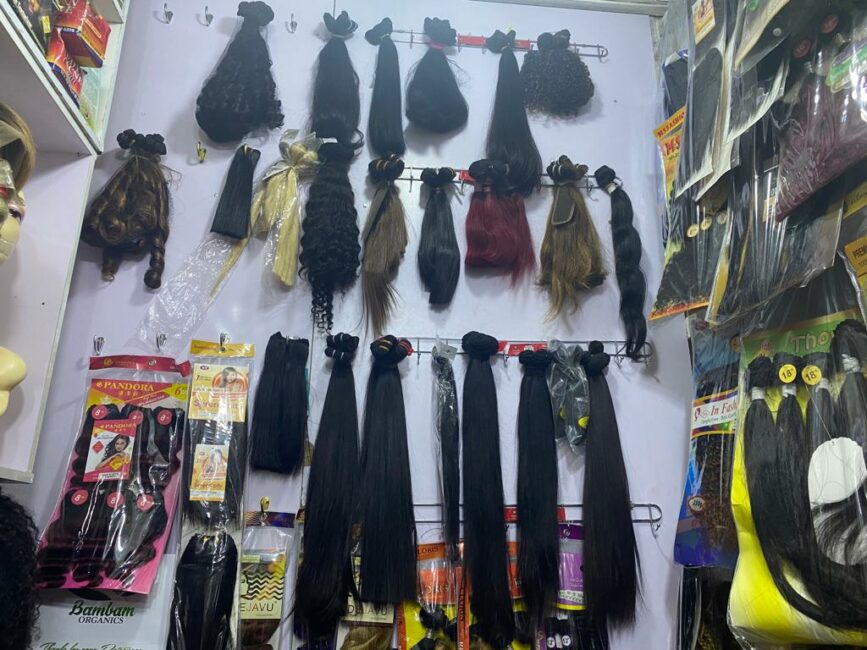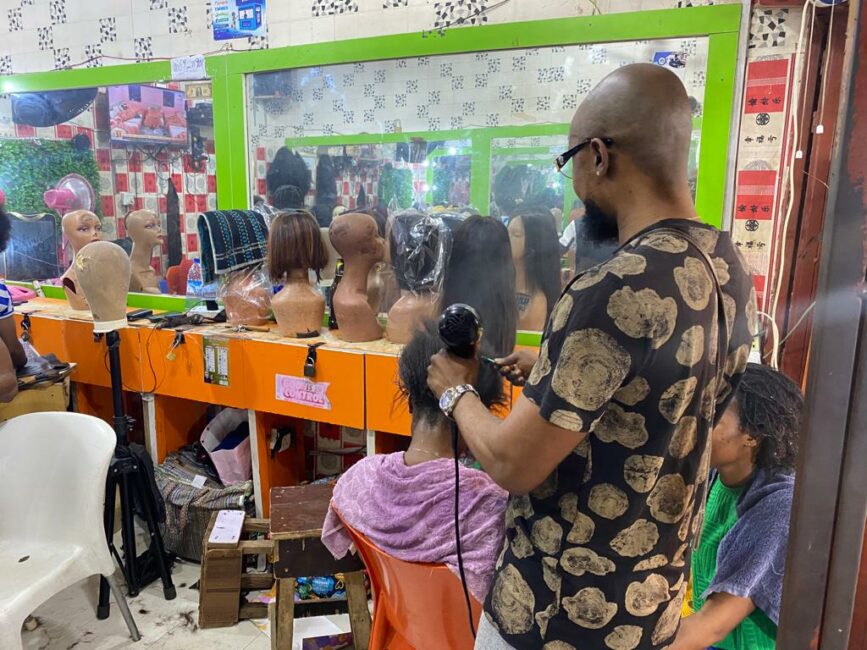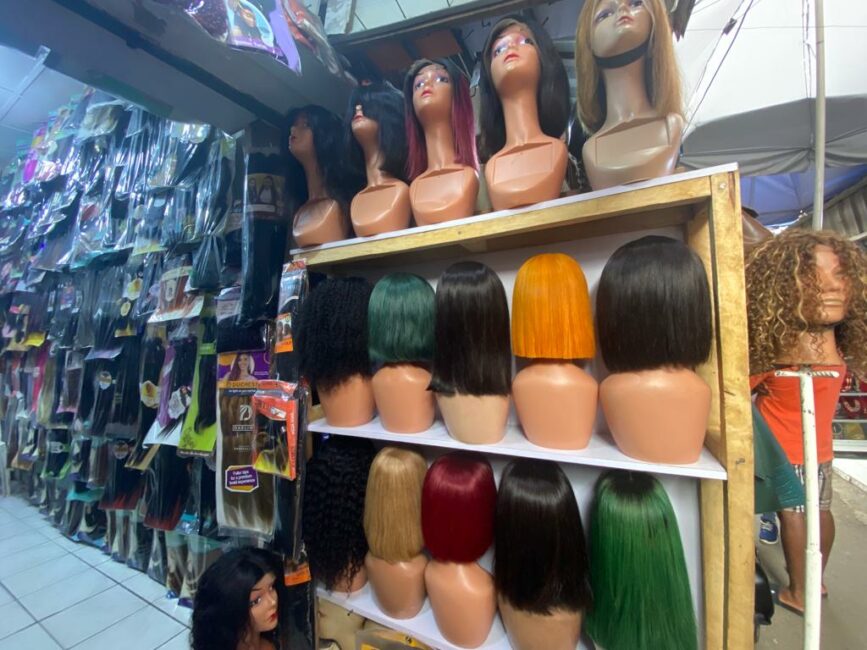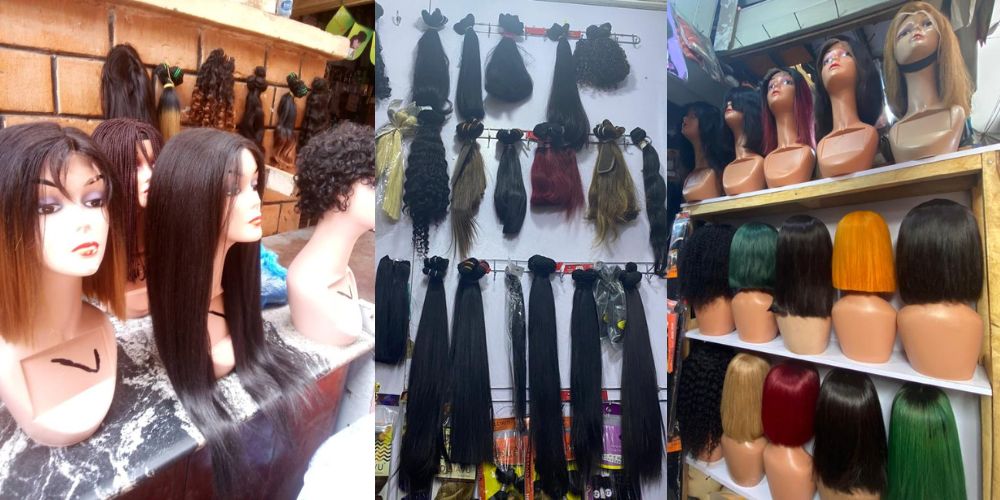Abuja ‘Big Girls’ Now Selling Off Expensive Wigs As Economic Hardship Bites Harder
As economic hardship continues to tighten its grip on Nigeria, an increasing number of Abuja ladies have turned to selling their wigs, THE WHISTLER can report.
The booming wig industry has become an investment scheme for many ladies who buy during times of plenty and sell off when faced with financial challenges.
Advertisement
Following the recent removal of petrol subsidy and the subsequent increase in commodity prices, many women are divesting their ‘assets’ in human and synthetic hair.
Okolie Uchenna, a human hair vendor located in Wuse market, told THE WHISTLER that sales have significantly declined since the removal of the fuel subsidy.
He explained that the rising foreign exchange rates have also made wig importation prohibitively expensive for many.
“These days I’m buying more wigs than I am selling. Because of the economic hardship, most people are no longer making purchases. Even the big girls who used to buy expensive wigs are now selling them back to me. If you wait here for the next two hours, I’m sure you will see someone bringing their wig to sell. That’s how dire the situation has become,” Uchenna lamented.
Advertisement
When asked about the reasons for the decline in sales, Uchenna said, “It’s quite obvious; wigs are considered a luxury, and with the increasing cost of essential items like food, it’s understandable that wig sales have slowed down. Many people own multiple wigs, so they choose to sell some to make ends meet. For example, if you have five expensive wigs, you can sell two or three when facing financial difficulties and repurchase when things improve. As I always tell my customers, a wig is both an investment and a fashion statement.
“I believe things will improve with time; it’s a matter of people adapting to the new economic reality,” he added with optimism.

Similarly, Ebuka Egbu, a stylist in the same market, shared that the number of styling jobs he receives has significantly decreased.
Stylists like him are responsible for transforming purchased human hair into wearable wigs, usually done with the use of a mannequin. He also installs wigs and frontals directly for consumers who wish to do so.
Advertisement
“It’s only when people buy wigs that we have work to do. Currently, many people aren’t buying due to financial hardships, but I expect the market to pick up towards the end of the year, especially from November, as people start purchasing hair and styling it ahead of the festive season,” he said while installing a synthetic wig on a mannequin.
Ebuka, a graduate, informed this website that prior to the subsidy removal, he earned more than fifty thousand naira daily as a wig stylist.
“The business was thriving; before the subsidy removal, I was making over 50k daily. Now, it has dropped to around 15,000 to 20,000 naira,” he stated.
“To make up for the shortfall in wig styling, I also offer braiding services,” he added.
Many customers at Uchenna and Ebuka’s shops were hesitant to speak to the press, but they all shared that they have sold wigs in the past when faced with financial needs.

Advertisement
Nkechi Godwin, a trader and mother of two whom our correspondent met at the Dutse market, expressed how the current economic situation has made life challenging for everyone.
“Wigs are not a priority for now. I have two children, and my utmost priority is to ensure they are well-fed and taken care of. School fees are approaching, and one has to be prudent. I’ve been contemplating selling one of my wigs to purchase school supplies for my kids,” she shared when asked if she was open to selling her wigs.
Benita Idowu, a stylist at the Dutse market, noted that more people are bringing their wigs to her for revamping with the intention of selling.
She stated, “I don’t have the funds to buy from people, but lately, more individuals have been bringing their old wigs for revamping, and I’m sure they plan to sell them.
“If the original price of a wig is N70,000, you can resell it for around N50,000, depending on the quality and how well it’s maintained,” Benita added.




